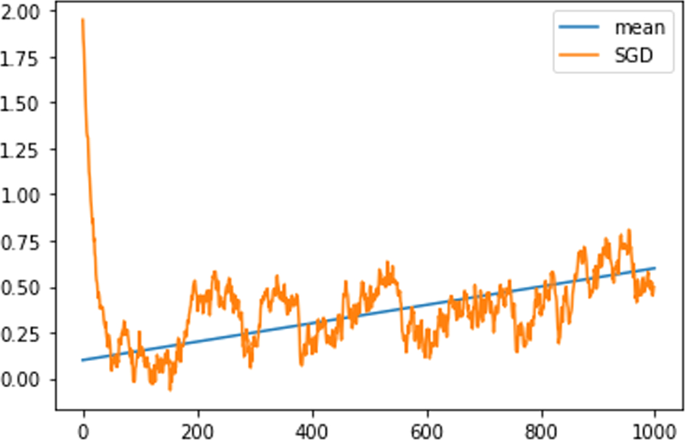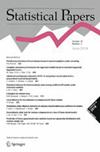具有时变参数的最大似然
IF 1.1
3区 数学
Q2 STATISTICS & PROBABILITY
引用次数: 0
摘要
我们考虑了一个未知时变参数的跟踪问题,该参数的特征是一系列独立观测值的概率演化。为此,我们提出了一种基于随机梯度下降的递归方案,其中观测值的对数似然作为时变增益函数。我们证明了在未知时变参数的合适邻域中均方误差的收敛性,并在属于指数族的分布中生成数据的情况下说明了我们的发现的细节。本文章由计算机程序翻译,如有差异,请以英文原文为准。

Maximum Likelihood With a Time Varying Parameter
Abstract We consider the problem of tracking an unknown time varying parameter that characterizes the probabilistic evolution of a sequence of independent observations. To this aim, we propose a stochastic gradient descent-based recursive scheme in which the log-likelihood of the observations acts as time varying gain function. We prove convergence in mean-square error in a suitable neighbourhood of the unknown time varying parameter and illustrate the details of our findings in the case where data are generated from distributions belonging to the exponential family.
求助全文
通过发布文献求助,成功后即可免费获取论文全文。
去求助
来源期刊

Statistical Papers
数学-统计学与概率论
CiteScore
2.80
自引率
7.70%
发文量
95
审稿时长
6-12 weeks
期刊介绍:
The journal Statistical Papers addresses itself to all persons and organizations that have to deal with statistical methods in their own field of work. It attempts to provide a forum for the presentation and critical assessment of statistical methods, in particular for the discussion of their methodological foundations as well as their potential applications. Methods that have broad applications will be preferred. However, special attention is given to those statistical methods which are relevant to the economic and social sciences. In addition to original research papers, readers will find survey articles, short notes, reports on statistical software, problem section, and book reviews.
 求助内容:
求助内容: 应助结果提醒方式:
应助结果提醒方式:


